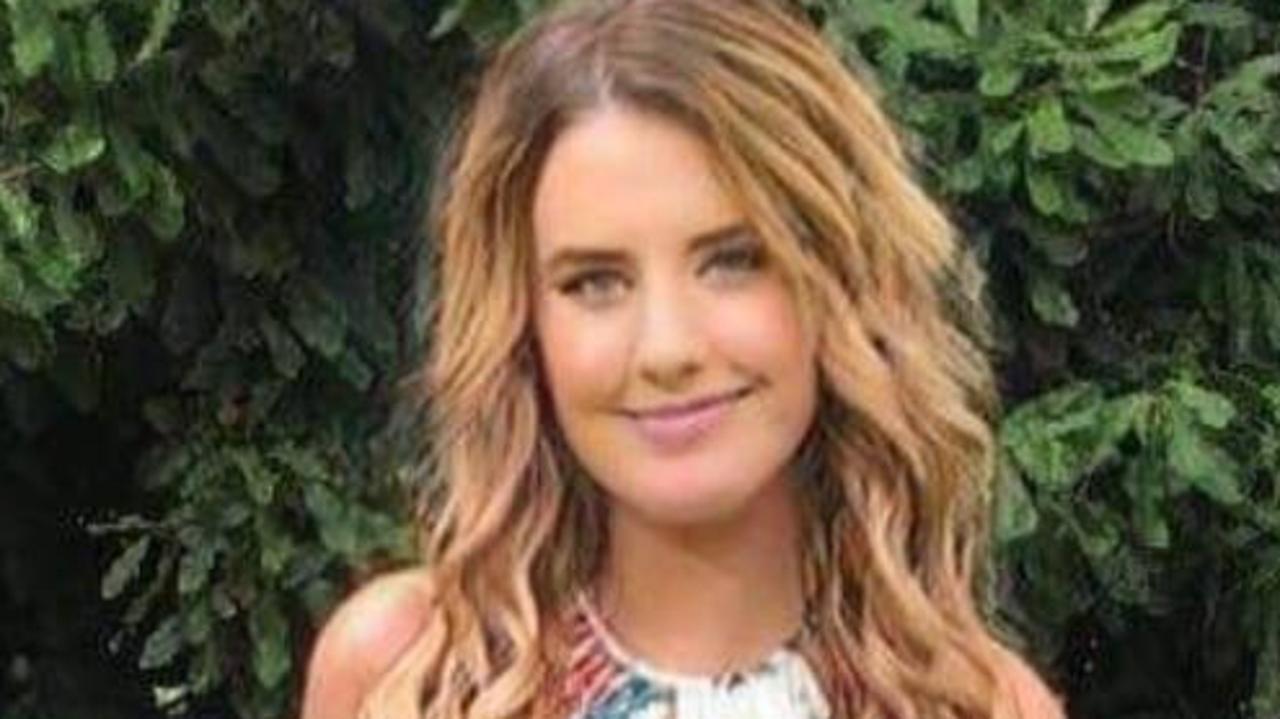France becomes first country to include abortion rights in its constitution
France has become the first country in the world to explicitly include a powerful woman’s right in its constitution after officials voted.
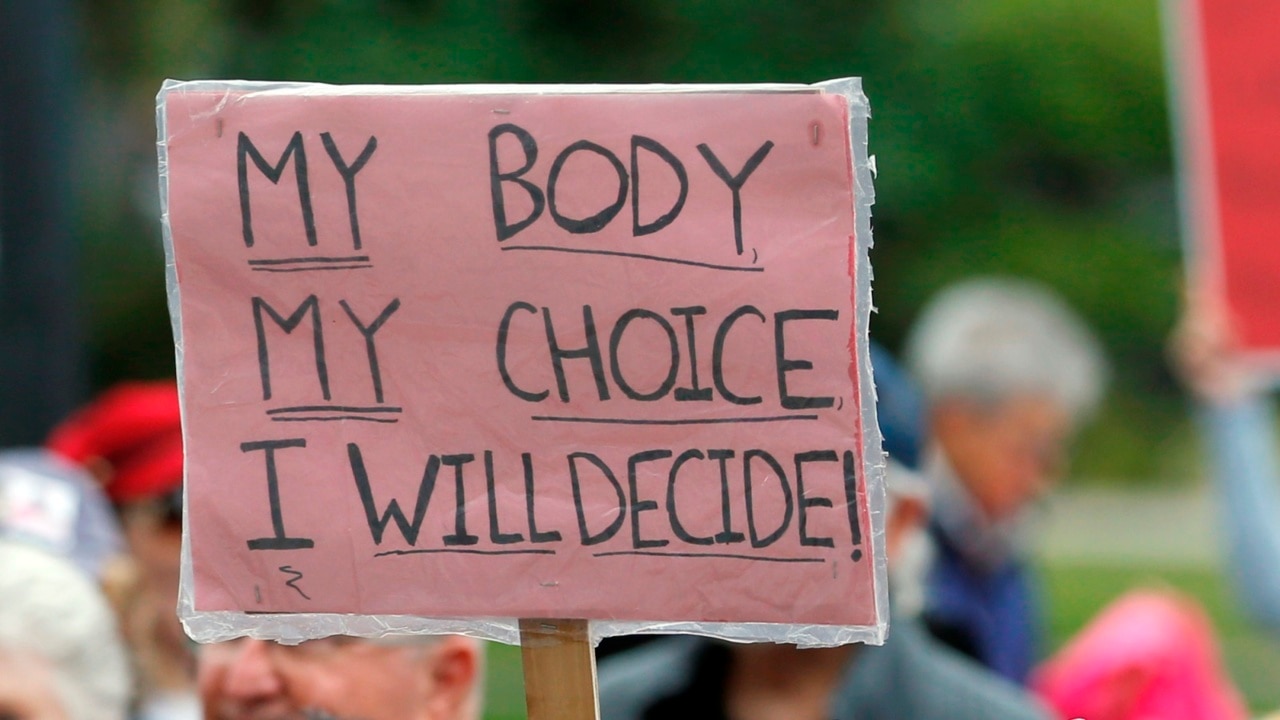
A powerful image has showed the relief women experienced after discovering their right to abortion is now guaranteed in one European country.
France has become the first country in the world to explicitly include the right to abortion in its constitution.
Parliamentarians voted to revise the country’s 1958 constitution to enshrine women’s “guaranteed freedom” to abort.
A congress of both Houses of Parliament gathered in a special chamber at the Palace of Versailles saw 780 politicians in favour and 72 voting against.
Women hugged and cried as the news broke that their right to have an abortion could not be taken away.
In one particularly poignant snap, a woman could be seen sobbing in response to the country’s move to guarantee abortion rights in it’s constitution. Others shouted out in relief.
The Eiffel Tower was even lit up in celebration after the change was passed with slogans including “My Body My Choice” flashing on the edifice.
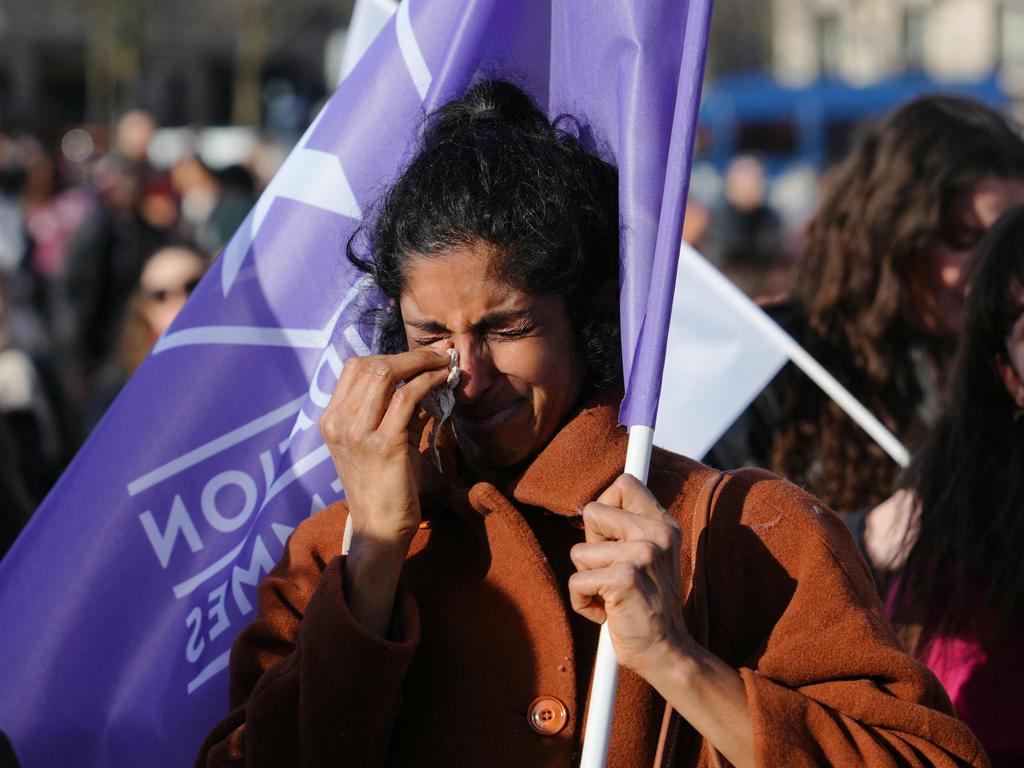
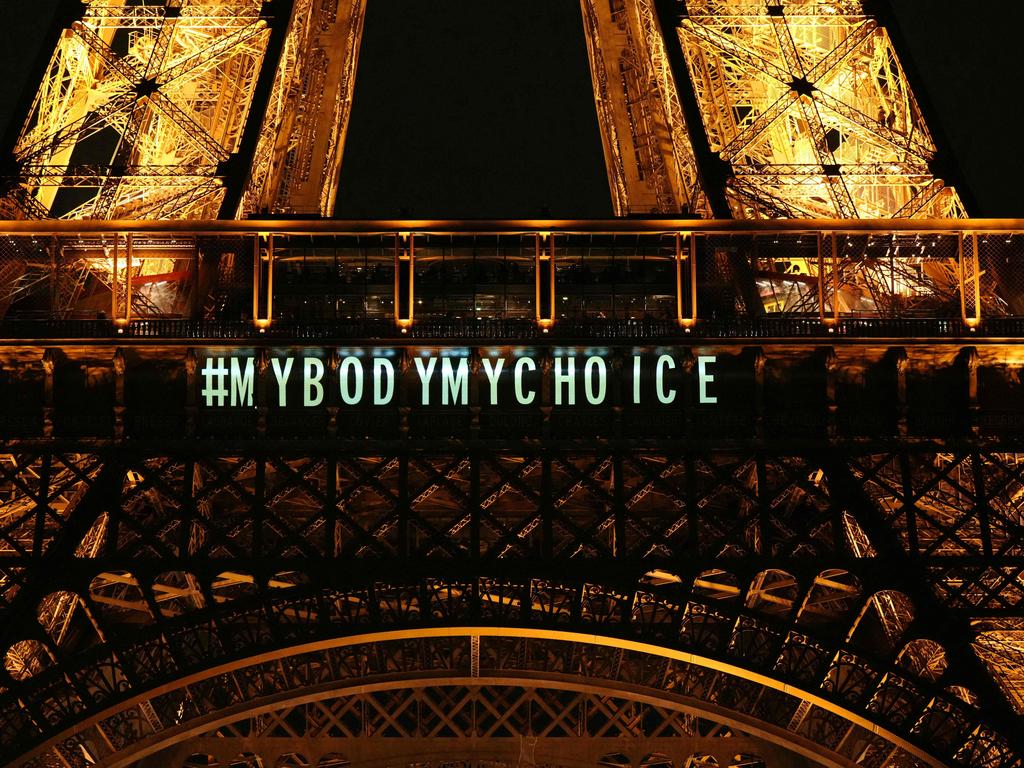
Abortion advocates flooded the streets to ring in the landmark legislation, marching through the streets with signs and flares.
President Emmanuel Macron described the move as “French pride” that had sent a “universal message”, and a special public ceremony is planned to celebrate the move in Paris on International Women’s Day on March 8.
“This is a fundamental step … A step that will go down in history,” Prime Minister Gabriel Attal told the politicians as he urged them to pass the legislation.
He said they owed “a moral debt” toward all women who had suffered before the legalisation of abortion.
But Attal said the right to abort remained “in danger” worldwide, with our “freedoms in essence threatened … at the mercy of decision makers”.
“In one generation, one year, one week, you can go from one thing to the opposite,” he said, referring to rights reversals in the United States, Hungary and Poland.
Such joint parliamentary sessions are rare in France and called only for momentous occasions such as constitutional changes, the last of which was made in 2008.

Macron pledged last year to enshrine abortion — legal in France since 1975 — in the constitution after the US Supreme Court in 2022 overturned the half-century-old right to the procedure, allowing individual American states to ban or curtail it.
The vote “is of huge significance given the rollback of this essential right around the world,” said Amnesty International’s secretary-general Agnes Callamard, adding that it had sent a message of “hope and solidarity”.
World Health Organisation chief Tedros Adhanom Ghebreyesus, in a post on X, welcomed “France’s decision to secure women’s rights and save their lives”.
In January, France’s lower house of parliament, the National Assembly, overwhelmingly approved the move with the upper house, the Senate, following suit on Wednesday.
A majority of the French public support the move to give the right to abortion extra protection, according to polls.

A November 2022 survey by French polling group IFOP found that 86 per cent of French people supported inscribing it in the constitution.
France’s openness also draws attention to the disintegration of bodily autonomy in the United States where Roe V Wade, which allowed for abortions, was repealed.
The move has led to prison sentences in some states for women who have sought abortions.
For instance, 18-year-old Celeste Burgess, from Nebraska, was sentenced to 90 days in prison and two years of probation for burning and burying a foetus.
The abortion violated the Nebraska law that banned abortion after 20 weeks.
Laura Slimani, from the Fondation des Femmes rights group, has been left over the moon at France’s move to guarantee the right to an abortion.
“This right (to abortion) has retreated in the United States. And so nothing authorised us to think that France was exempt from this risk,” she said, according to the BBC.
“There’s a lot of emotion, as a feminist activist, also as a woman.”
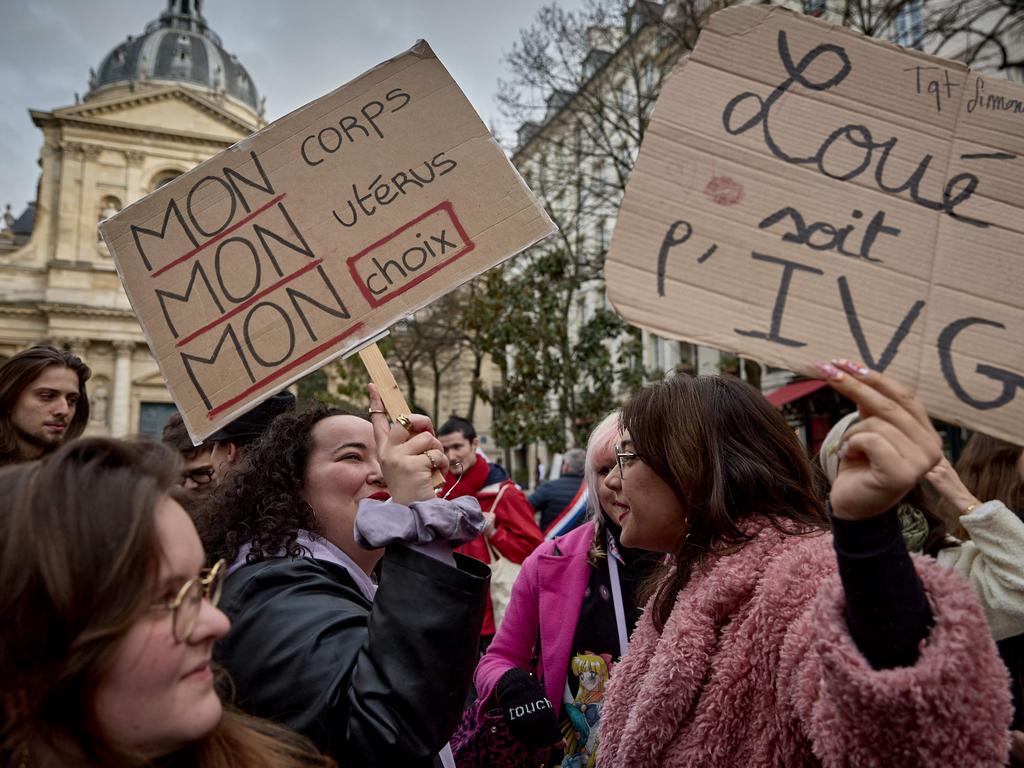
Backlash over France’s abortion call
Left-wing and centrist politicians within France have welcomed the change, while some right-wing senators have said in private they felt under pressure to give it a green light.
Several hundred abortion opponents, largely marginalised in the move for the constitutional change, protested in Versailles.
Catholic bishops meanwhile called for a day of “fasting and prayer” so the French could “rediscover the taste for life”.
The French Bishops’ Conference (CEF) argued that abortion, “which remains an attack on life” cannot be seen “exclusively from the perspective of women’s rights”.
Weighing in from Rome, the Vatican said there could be “no ‘right’ to take a human life”.
“All governments and religious traditions must do their best so that at this stage in history, the protection of life becomes an absolute priority, with concrete steps in favour of peace and social justice and with effective measures for a universal access to resources, education and healthcare.”
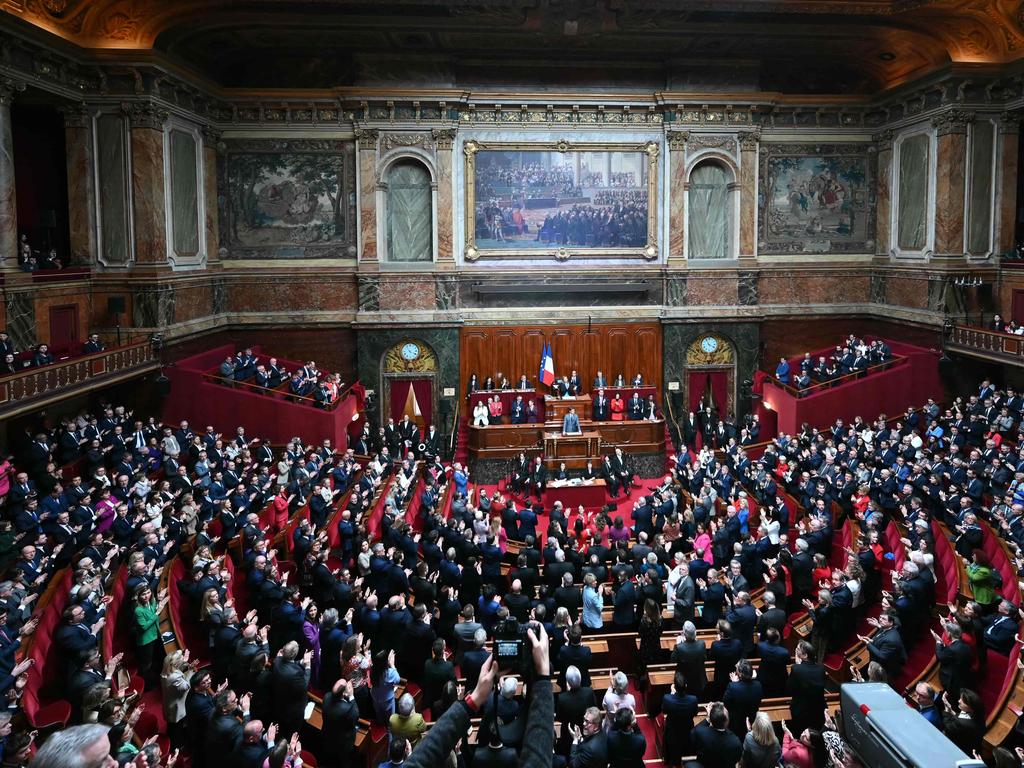
But hundreds of jubilant backers of the move leapt for joy at the Place du Trocadero in western Paris as they witnessed the passing of the law on a large screen set up for the occasion.
“I’m happy because our rights are constantly under threat everywhere … and it’s only getting worse,” said Cecile Carimalo, 46, who watched with her 12-year-old daughter at the Trocadero esplanade.
“This they won’t be able to take from us.” “If men got pregnant, it would have been inscribed in the text in 1792” during the French Revolution, she added.
Abortion was legalised in France in 1975 in a law championed by then-health minister Simone Veil, a women’s rights icon granted the rare honour of burial at the Pantheon after her death in 2018.
When political campaigning began in earnest in 1971, “we could never have imagined that the right to abortion would one day be written into the constitution”, Claudine Monteil, head of the Femmes Monde (Women in the World) association, told AFP.
At the time, an estimated 700,000 to 800,000 women aborted each year. Leah Hoctor, of the Center for Reproductive Rights, said France could offer “the first explicit broad constitutional provision of its kind, not just in Europe, but also globally”.

